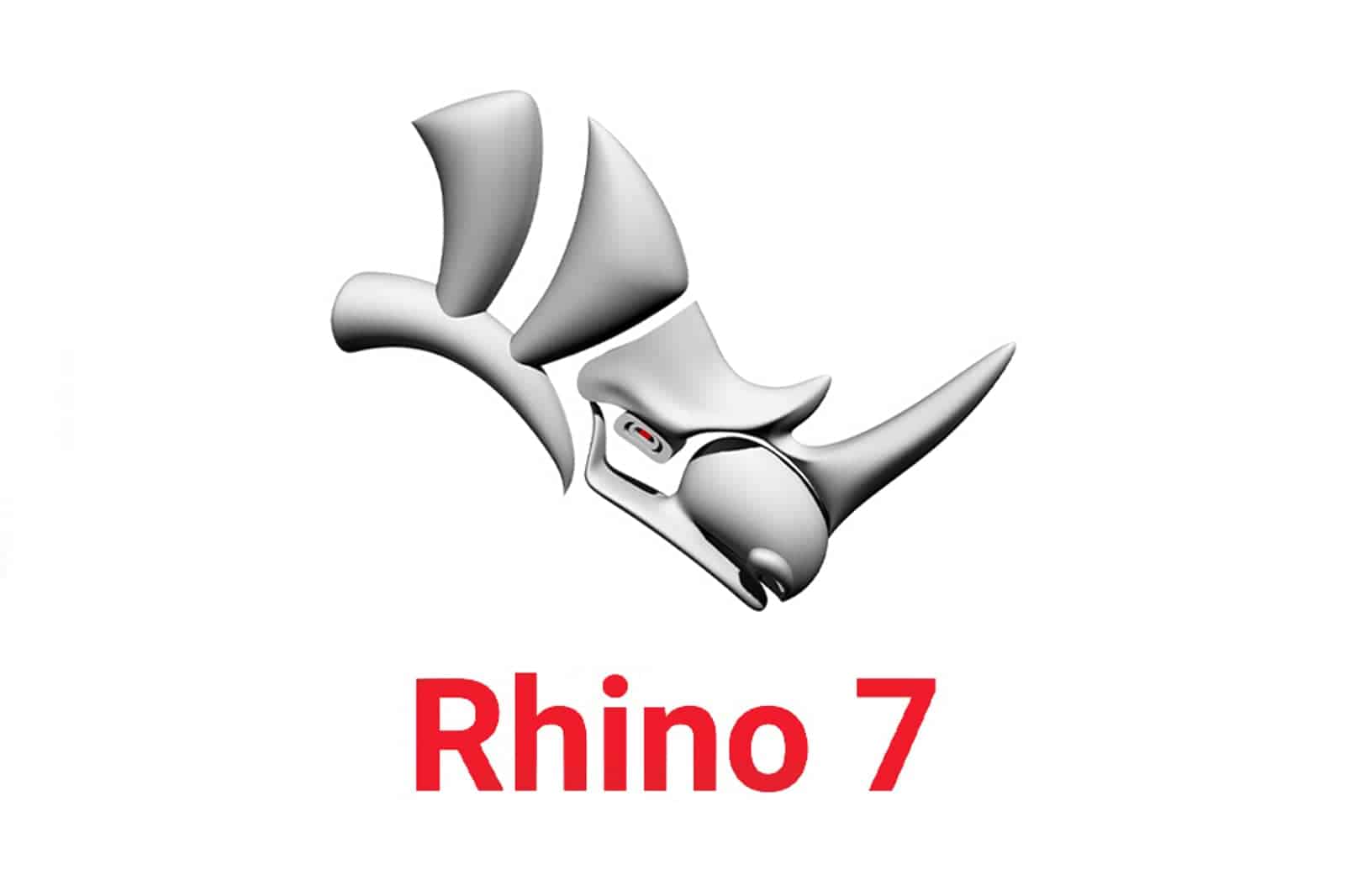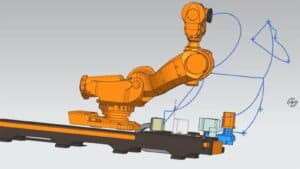Choosing the best laptop for Rhino 7 can be a daunting task, especially when considering the unique requirements of this powerful 3D modeling software. As someone who has spent countless hours working with Rhino and analyzing laptop specifications, I understand the importance of selecting a laptop that can handle the demands of Rhino 7 while maintaining smooth performance.
Rhino 7 is well-known for its versatility and flexibility in handling complex modeling tasks, which means that the ideal laptop must be equipped with a potent CPU, sufficient RAM, and a dedicated GPU to handle heavy rendering workloads. When reviewing the extensive laptop spreadsheet of recent releases, I focused on comparing specs and reviews from both professional and user-generated sources. The top laptops for Rhino 7 were narrowed down based on topic-specific requirements and price ranges, ensuring a balance between performance and affordability.
My experience with Rhino 7 has shown me that investing in the right laptop can significantly impact your workflow efficiency, from working with SubD objects to utilizing the powerful Grasshopper visual programming language. Whether you're a seasoned architect, industrial designer, or a student learning the ropes of 3D modeling, the goal of this guide is to help you find the best laptop for Rhino 7 tailored to your specific needs and preferences.
Unleash Rhino's Power: Choose the Right Processor
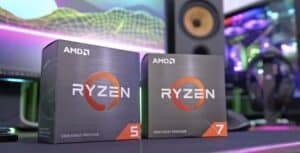
Rhino 7 is a powerful 3D modeling software used by architects, designers, engineers, and artists alike. When choosing a laptop processor for Rhino 7, there are a few things to consider.
Is a fast processor necessary for 3D rendering?
While a fast processor is certainly helpful, Rhino is a polygon-based application, so single-core performance is not as critical as in other applications such as 3ds Max or Maya. That said, if you plan on working with larger and more complex models, a faster processor will certainly help.
When to expect a CPU bottleneck (and when to expect a GPU bottleneck).
It's essential to understand when your system will bottleneck. With Rhino, a faster processor helps with model creation and editing, but when it comes to rendering, your GPU is more important. So, if you are planning on doing a lot of rendering, it might be worth investing in a laptop with a dedicated GPU.
How do I rank processors by performance?
When comparing different processors, I use Cinebench R23 because it's a popular benchmark with a good range of scores (from low to high TDP). However, if you're using Rhino for architectural visualization, you should look for more GPU-friendly benchmarks such as LuxMark or V-Ray benchmark.
Table of recommended processors, grouped by price bracket.
| Processor | Price Range | Recommended For |
|---|---|---|
| i5-11320H | Budget | Basic modeling and editing |
| AMD Ryzen 5 5600U | Mid-Range | Large models and basic rendering |
| i5-11500H | High-End | Large models and advanced rendering |
It's important to note that if you're looking for a budget laptop, don't expect to get a high-end CPU. You'll need to make some concessions somewhere else, such as RAM, SSD size, or display quality. When selecting a processor for Rhino, keep in mind your workflow, usage, and budget. With the right processor, you can efficiently and effectively create 3D models in Rhino 7.
Unleashing Rhino 7: How to Choose the Best Graphics Card for Optimum Performance
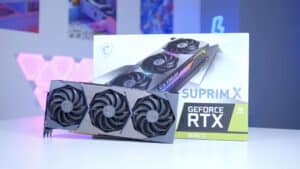
When it comes to selecting the right laptop graphics card for Rhino 7, there are a few things you need to keep in mind. Let's take a look at the current state of the graphics market and some important factors to consider before making a purchase.
The state of the graphics market
Nvidia currently dominates the laptop GPU market. While the RTX 40 series cards are starting to hit the shelves, the majority of laptops still use RTX 30 series cards. Desktop GPUs are now more power-hungry, which has resulted in a wider gap between power-limited notebook graphics and desktop graphics cards.
It's also important to note that Nvidia has discontinued the Max-Q label for its RTX graphics cards. Instead, laptop manufacturers (OEMs) determine the exact GPU wattage, which can result in a wide variance in graphics performance even among laptops with the same GPU chipset.
Do you need a dedicated GPU for Rhino 7?
A dedicated GPU is not necessary for Rhino, but it can speed up some tasks, especially if you're using Cycles for rendering. However, if you're looking for a workstation laptop for 3D modeling, you'll need a dedicated graphics card.
How is the GPU used in Rhino 7?
In Rhino 7, the GPU is mainly used for display purposes rather than computation. It's not typically a bottleneck in most workflows. However, if you're working with complex models and scenes, you might want to consider going all the way to a high-end GPU such as the RTX series.
How do you know which GPUs are faster?
To compare different GPUs side-by-side, I use 3DMark since it's an industry-standard benchmark that provides an apples-to-apples comparison of graphics performance.
Recommended graphics cards for 3D modeling
Here are some recommended graphics cards for 3D modeling in various price ranges:
| Price Range | Recommended GPU |
|---|---|
| Minimum | GeForce RTX 3050 |
| Recommended | GeForce RTX 3060 |
| High-end | GeForce RTX 2080 SUPER |
If you're looking for a laptop with great graphics performance but don't need the latest and greatest features (such as raytracing), then AMD's Ryzen 5 or Intel's Core i5 processors would be a good option – they offer better value than the H-series chips without sacrificing too much in terms of performance.
Ram your Rhino 7 with the Right Memory: A Buyer's Guide
When it comes to 3D modeling, RAM is arguably the most crucial component of your laptop. It is responsible for loading and storing your models, textures, and other data, allowing you to work with them in real-time. Insufficient memory can cause lag, crashes, and lost work, while having more than you need can be a waste of money.
If you're planning to use Rhino 7, then you'll want to get as much RAM as possible. The minimum recommended amount is 16 GB, but if you're working with complex scenes, then you'll benefit from having 32 GB or more.
Currently, the latest-generation Intel and AMD CPUs support both DDR4 and DDR5 RAM. While DDR5 is faster and more power-efficient, it's also relatively new and expensive. At the moment, there aren't many laptops on the market that come with DDR5 memory. Therefore, it's not worth paying extra money for it unless you're looking for a laptop that will last you for years to come.
Aside from the capacity and type of RAM, you may also want to consider other factors such as latency, frequency, and ECC (Error-Correcting Code) memory. Lower latency and higher frequency can improve performance, but they also come at a premium. ECC RAM can detect and correct errors, making it ideal for sensitive data and compliance requirements.
If you're on a budget, you can expect to find laptops with 16 GB or 32 GB of DDR4 memory. Mid-range laptops may come with 32 GB or 64 GB of DDR4 memory or 16 GB of DDR5 memory. High-end laptops can have up to 64 GB or 128 GB of DDR4 memory or 32 GB of DDR5 memory.
In summary, when choosing the right laptop RAM for Rhino 7, aim for a minimum of 16 GB and consider getting at least 32 GB if you're working with complex scenes. DDR5 memory is a nice-to-have but not essential, and ECC memory may be worth considering for sensitive data. Expect to find laptops with DDR4 memory at a variety of price points, with DDR5 memory being less common and more expensive.
Unleash Your Inner Designer: Rhino 7 Laptop FAQs
Q: What laptop specs are recommended for Rhino 7?
For a smooth experience, we recommend a laptop with a minimum of 32 GB of memory, an i5-11500H processor, and a GeForce RTX 3060 graphics card.
What is the best laptop for Rhino 7?
The Lenovo Legion 5 Pro is a great option that balances price and performance. However, if you're looking for top-of-the-line specs and don't mind spending a lot, the ASUS ROG Strix Scar G733CX-XS97 is an excellent choice.
How much RAM do I need for Rhino 7 on a laptop?
16 GB is the minimum requirement, but for a smoother experience, we recommend going for 32 GB or even 64 GB if your budget allows it.
Can I run Rhino 7 on a laptop?
Yes, Rhino 7 can run on a laptop with the appropriate specs. However, keep in mind that running intensive programs like Rhino 7 on a laptop may lead to thermal throttling, especially if the laptop's cooling system is inadequate.
Which graphics card is best for Rhino 7?
The recommended graphics card for Rhino 7 is the GeForce RTX 3060. However, if you want to future-proof your laptop, you might want to consider going for the more powerful GeForce RTX 2080 SUPER.
What processor is best for Rhino 7?
An i5-11500H processor or better is recommended for Rhino 7. However, if you have a bigger budget, the AMD Ryzen 5 5600U is a great choice.
Is an SSD necessary for running Rhino 7 on a laptop?
While it's not strictly necessary, having an SSD will significantly improve the speed of your laptop, especially when working with large files.
Can I use Rhino 7 on a Mac laptop?
Yes, Rhino 7 is available for Mac. However, keep in mind that not all laptops will meet the recommended specs, so make sure to check before purchasing.
What laptop brands are compatible with Rhino 7?
Any laptop brand can potentially be compatible with Rhino 7, as long as it meets the minimum specs required. Some brands that are known for producing high-performance laptops include Lenovo, ASUS, Dell, and Gigabyte.
Can a budget laptop run Rhino 7?
It's possible to run Rhino 7 on a budget laptop, but the experience might not be as smooth as on a higher-end laptop. If you're on a tight budget, the Lenovo Ideapad3i is a good option, although keep in mind that the minimum specs required for Rhino 7 are still relatively high.
6 Best Laptops for Rhino 7
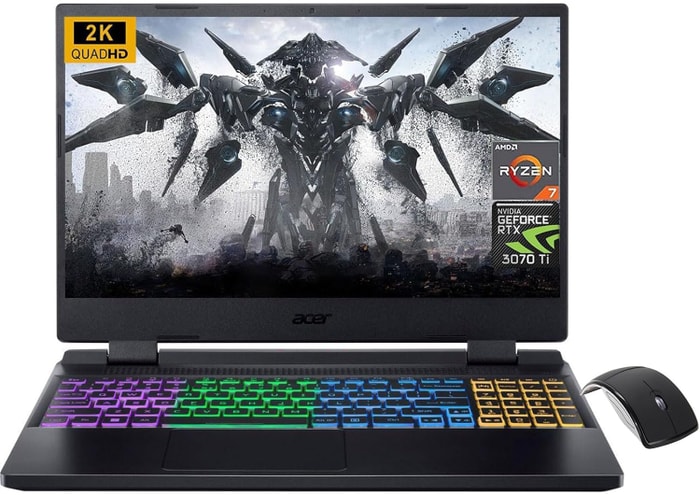 $680
$6801.acer Nitro 5
Rhino 7 laptop- One of most affordable laptops with an AMD Ryzen 7 processor
- Fat 1TB SSD
- No IPS Panel (inferior color reproduction)
Alternatives
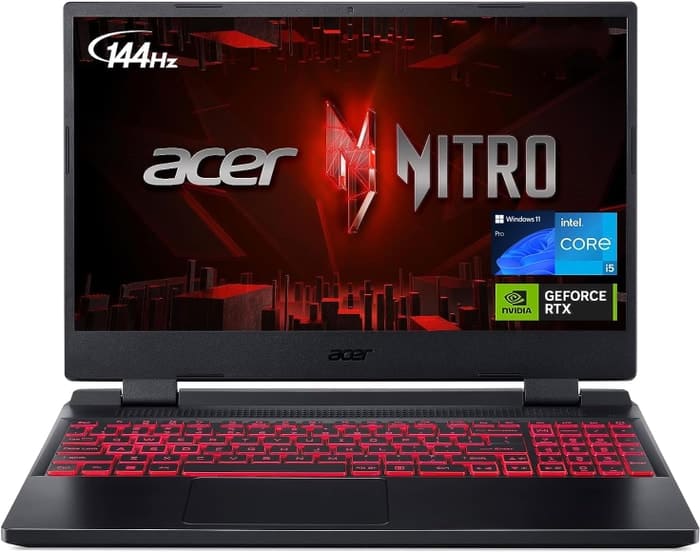
Acer Nitro 5
- Affordable price
- Good gaming performance with 12th Gen CPU and GeForce RTX 3050 Ti
- Limited storage and CPU for gaming
- Middling build quality

2.ASUS TUF Dash F15
ASUS TUF Dash F15: A competitively priced, all-purpose/gaming laptop with improved performance and good display options.- Lightweight and well built
- Good input options and IO
- FHD 300Hz and QHD screen options
- Improved performance compared to previous generation
- Quirks affecting everyday ergonomics
- Ports squeezed together on the left edge
- Avoid the FHD 144Hz panel option
Summary
The ASUS TUF Dash F15 is a well-built and lightweight laptop that offers improved performance compared to its previous generation. It comes with good input options, a range of display options including a FHD 300Hz and QHD screen, and a competitively affordable price. However, there are some quirks affecting everyday ergonomics and the FHD 144Hz panel option should be avoided.
Reviews
Alternatives

Lenovo Legion 5i Pro 16
- Stylish, sleek form factor
- Gorgeous display
- Webcam quality is poor
- No biometrics
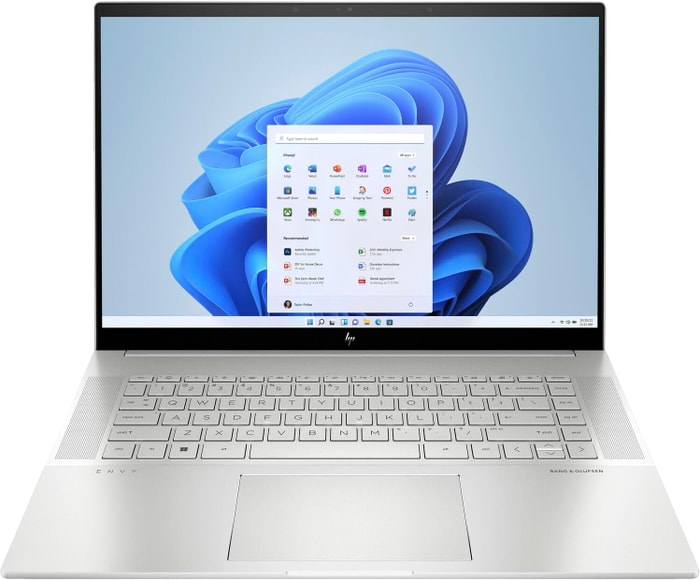 $1,800
$1,8003.HP Envy 16
HP Envy 16: A heavy but powerful laptop with impressive features for creatives and gamers.- Plenty of CPU and GPU power
- New 120Hz screen refresh rate
- High-res webcam
- Sleek design
- Merely adequate base screen
- Optional OLED has fewer pixels than before
- Bulky and heavy
Summary
The HP Envy 16 is a bulky yet powerful laptop that offers high-end features like a 120Hz refresh display and a high-res webcam, making it a great choice for creative apps and light gaming. However, it falls short with its merely adequate base screen and the optional OLED having fewer pixels than before.
Reviews
Alternatives

ASUS ROG Strix G15
- High performance CPU and GPU
- Good workmanship and design
- Skimpy connectivity
- Occasional coil whine
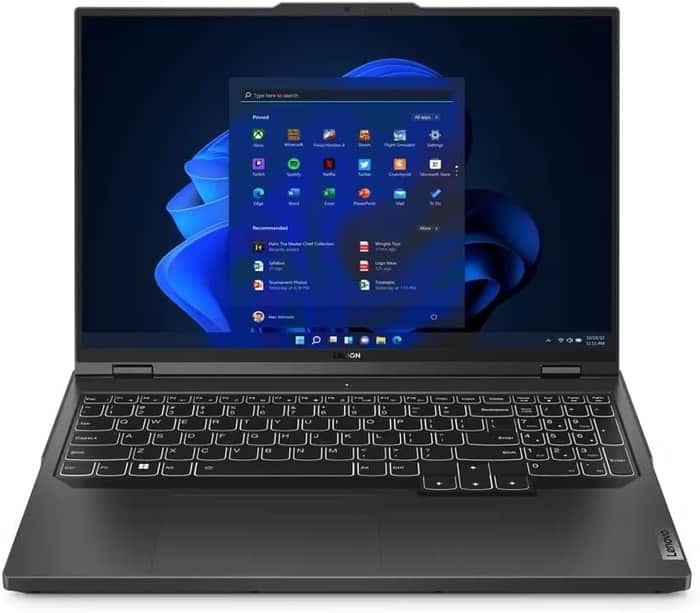
4.Lenovo Legion Pro 5
Lenovo Legion Pro 5: A well-built mid-tier laptop with good performance, but beware of hotspots and limited battery life.- Good build quality and design
- Good screen and IO
- Competent CPU with multiple GPU options
- Competitively priced
- No Thunderbolt or biometrics
- Hotspots during gaming
- Limited battery life
- Poor speakers
Summary
The Lenovo Legion Pro 5 offers a good balance of performance and value, with a solid build quality and a good screen. However, potential buyers should be aware of hotspots during sustained loads, limited battery life, and poor speakers.
Reviews
Alternatives
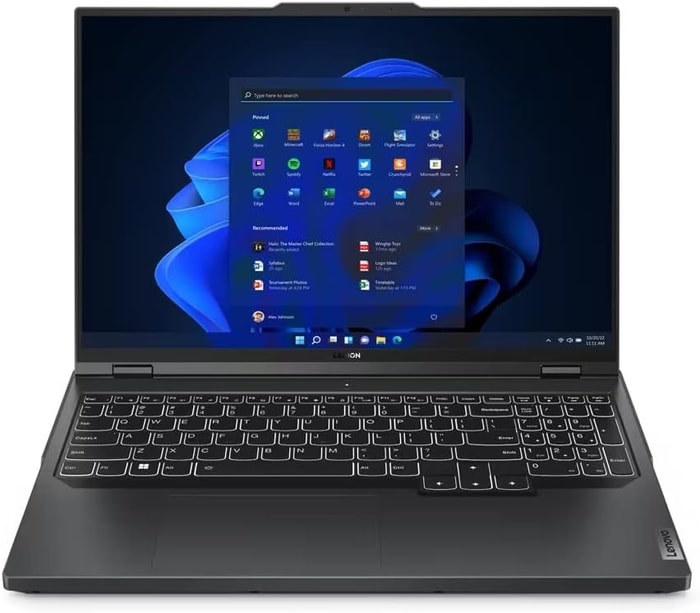 $2,840
$2,840Lenovo Legion Pro 5
- Strong performance for the price
- Quality build and port selection
- Display quality and battery life are just decent
- Bulky and heavy

5.Lenovo Legion Pro 7i 16
Lenovo Legion Pro 7i 16: A sleek and powerful gaming laptop that delivers impressive performance at a fair price.- Strong overall performance
- Big, bright, and fast display
- Per-key RGB lighting
- Some flex to keyboard deck
- Poor battery life
Summary
The Lenovo Legion Pro 7i 16 combines sleek design with powerful hardware, including an i9-13900HX processor and RTX 4090 graphics card, to deliver impressive gaming performance. While it may have some limitations with its GPU and battery life, it offers great value compared to similarly specced competitors.
Alternatives

HP Omen 17
- QHD display with 165 Hz refresh rate
- Expandable working memory
- Slightly below-average performance
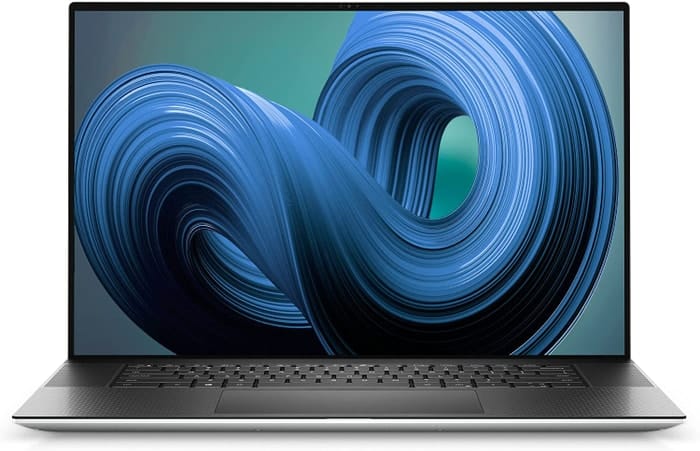
6.Dell XPS 17 9720
Dell XPS 17 9720: An impressive laptop with a stunning 4K display, high performance, and a sleek design, but suffers from lower graphics performance and a weak cooling system.- Excellent 4K display with AdobeRGB
- High-quality case
- Thunderbolt 4 PCIe 4.0
- Very high system performance
- Lower graphics performance than the predecessor
- Performance not completely stable under combined load
- Not Wi-Fi 6E compatible
- 720p webcam
Summary
The Dell XPS 17 9720 is a powerful laptop with an excellent 4K display, high-quality build, and fast performance. However, it falls short in terms of graphics performance and cooling, and lacks Wi-Fi 6E compatibility.
Reviews
Alternatives
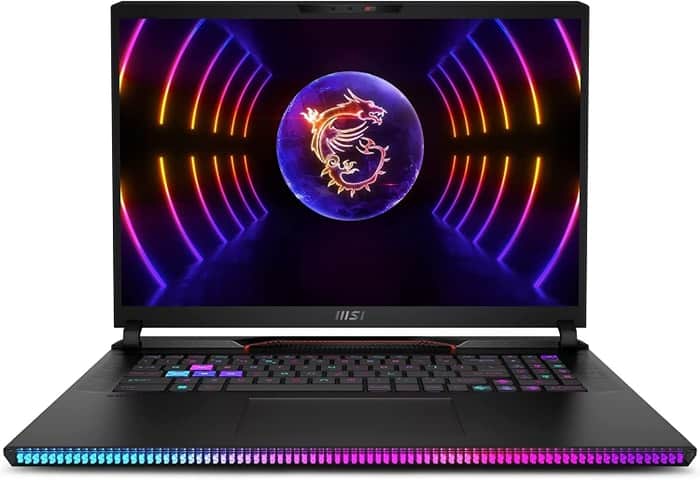
MSI Raider GE78 HX 13VI-079US
- Comfortable keyboard
- Solid gaming performance
- Removing the base to upgrade is difficult
- Fans run quite loud
Table of the Best Laptops for Rhino 7
| Laptop | Price (approx) |
| acer Nitro 5 | $680 |
| ASUS TUF Dash F15 | $1,160 |
| HP Envy 16 | $1,800 |
| Lenovo Legion Pro 5 | $2,630 |
| Lenovo Legion Pro 7i 16 | $3,390 |
| Dell XPS 17 9720 | $5,600 |

